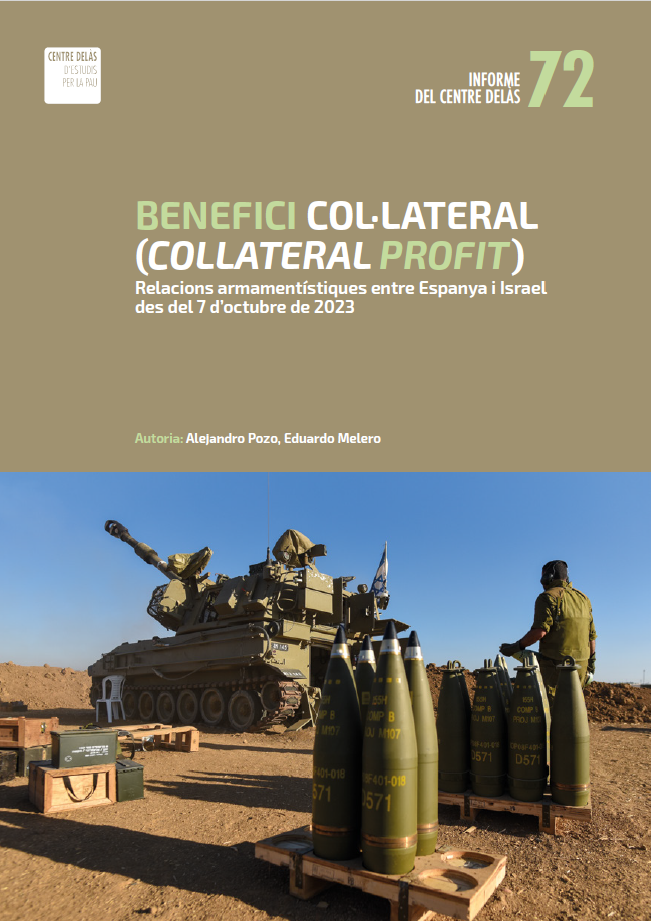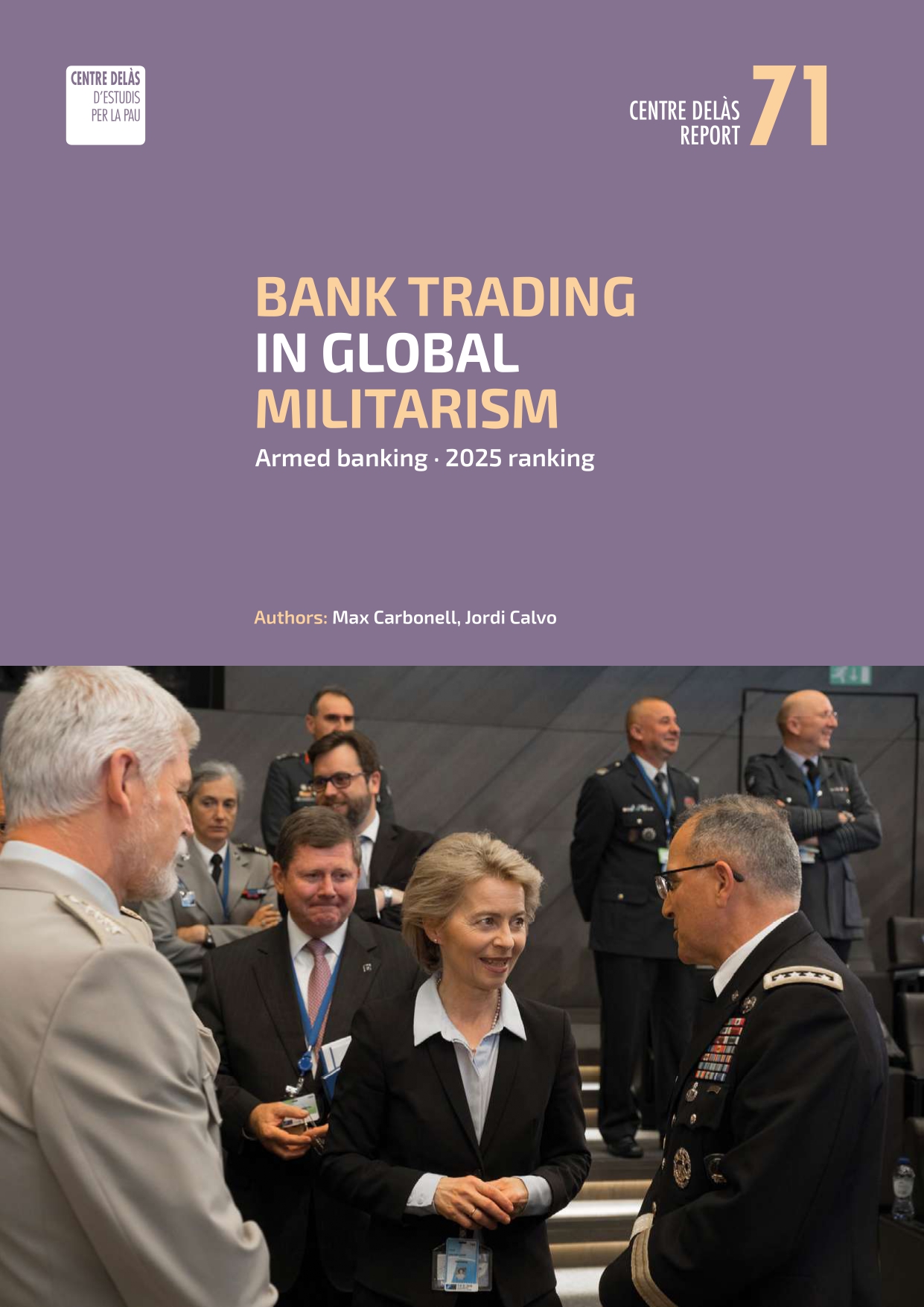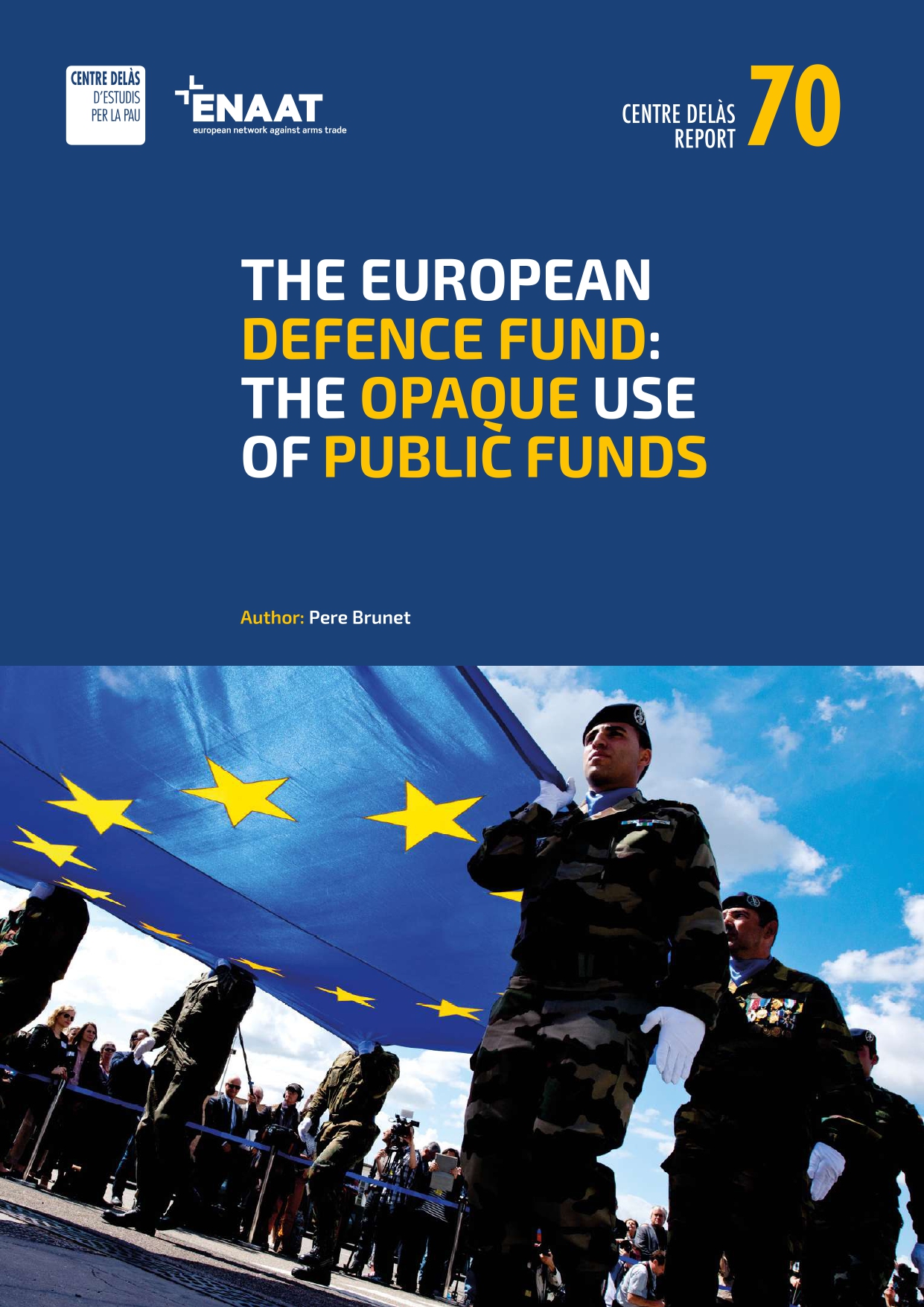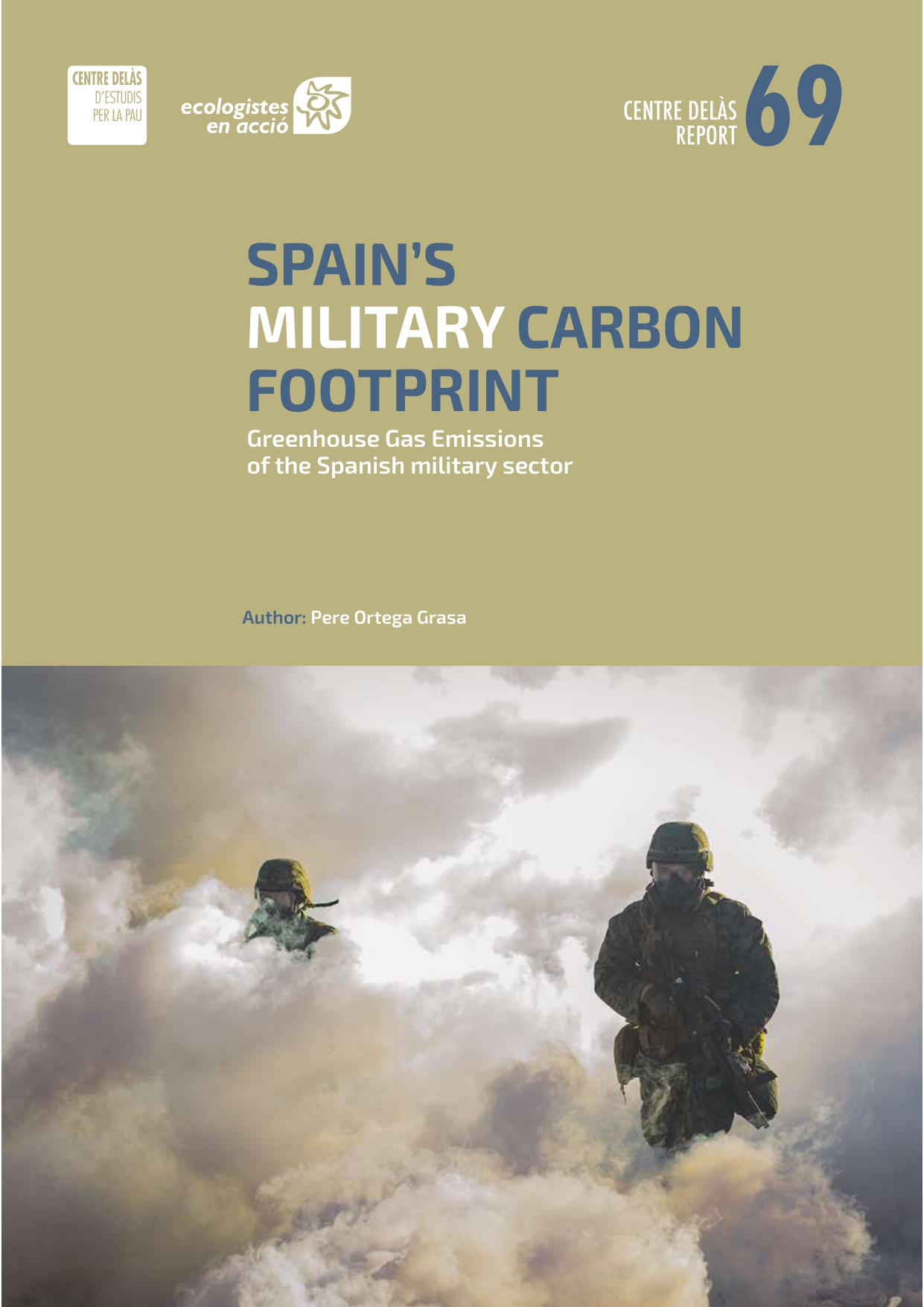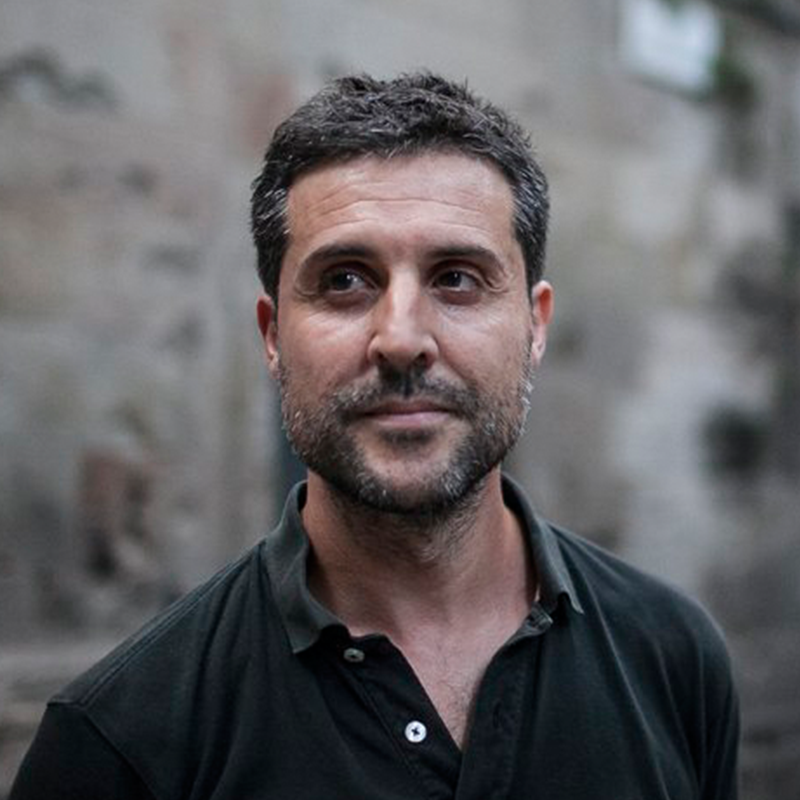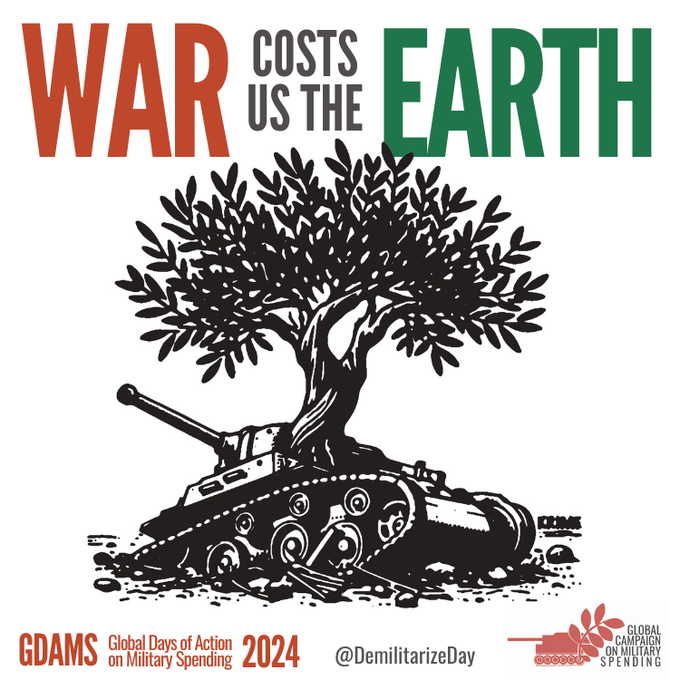Less military spending for more security. Global Campaign on Military Spending
Jordi Calvo Rufanges – Intervention in Peace and Security cluster of AEPF Ghent 2018
Centre Delàs – International Peace Bureau
Military spending in the world
We have reached a new maximum on military budgets in the world. SIPRI estimates that global military spending was 1,739 billion dollars in 2017. Year after year the main five military budgets are from USA, China, Saudi Arabia Russia, India, followed mainly by Western Europe (UK, Germany, France). Japan and South Korea close to the top ten list. We also have to pay attention to military spending of other NATO countries such as Turkey, Italy, Spain, and Canada, which make possible that NATO members are responsible for more than half of military spending in the world. EU becomes the second largest military spender in the world, just after USA. By regions, military spending increases in Eastern Europe, Central and South Asia and East Asia.
Military spending creates insecurity and intensifies mistrust
In opposition to the old idea of deterrence and security doctrines based on an increase of military capabilities as a way to get more security, militarization and armamentism are creating an arms race in the world.
Higher and growing military arsenals and the strength of military capabilities in more countries are promoting mistrust and suspicion among the entire international Community, moving International Relations towards old paradigms that were already outdated, based on anarchist (Realism) relations among countries, conceptualized on competition and balance of power.
Military budgets militarize relations between countries. More militarization means bigger armies, easier to mobilize, to be sent anywhere in the world. High rates of military spending makes more likely the use of military instead of diplomacy. As a result, cooperation, multilateralism and preventive diplomacy are in risk of being totally ineffective.
Militaries are useless to respond to real security threats
A recent and conclusive example of how military responses are not the best response to fight against security threats is the Global War On Terror. Among all threats identified by most national security and defence doctrines world over, terrorism is perhaps the main threat to security.
Nobody doubts about the need of an answer after the 2011 attacks in USA and hundreds of terrorist attacks of the same nature in Europe, Asia, Africa and Middle East. The main military power worldwide, United States, drive the so-called Global War On Terror, that meant that at the end, the military occupation of Afghanistan and Iraq by US Army and its allies, or direct and indirect military interventions in Libya, Syria, Mali or Yemen, among others. It’s crystal clear that terrorist threats are much higher nowadays than when the Global War On Terror started, in 2011.
Who’s creating terror, then? Civilian casualties and humanitarian personnel bombed by militaries, victims of drone attacks, and all innocent people running away, forcefully displaced from all mentioned wars, know very well what the terror is about.
We need to question with conviction that military security doesn’t create security, but the opposite. Almost all threats to our security identified even by militaries are related to the term Human Security developed by the UNDP in 1994, but sadly forgotten by most of the leading political leaders in the world.
Governments don’t work on the Human Security framework because the security they prioritize is the security of States, meaning in most of the cases not to question political, social or economical status quo, and elites refusing the possibility of loosing privileges.
Military and Defence Economics
Military spending serves mainly to militarize societies and politics but also economics. Public military budgets are the only relevant source of incomes for military industry. Thus, arms businessmen need to keep the military security approach in governments to assure their activity and future profits.
Military industrial complex production is difficult to calculate in an accurate way. Nevertheless we have data for 2016 from SIPRI about the main 100 arms companies in the world. Regarding their origin, it happens that the same as with military budgets. Main military companies are from the biggest and main military spenders. The biggest come from USA, Western Europe and Russia, but there are also from China, India, Japan, Israel, South Korea, Turkey,… And only these have sales every year close to 400 billion dollars. Another indicator also given by SIPRI of arms business is related to the worldwide amount of arms exports, that reaches around 30 billion dollars of arms exports every year.
Despite doubts of efficiency of military response to security threats, military companies are able to get from governments public contracts, grants for military research, and support from foreign affairs services of a country, from Ministry of Defence, and even from Heads of States. This is achieved because of the influence and lobby of the so-called military-industrial complex. Which includes not only arms businessmen, middlemen, but also militaries and politicians. It’s possible, thanks to a phenomenon known as “revolving doors” which allows an easy transition of key people from arms business to government high responsibilities in Defence and even militaries that become CEOs of military industries.
In addition military companies have a complete network of think tanks and management organizations physically based close to the main centers of political decision-making. As an example we can mention hundreds of military lobbyists in Brussels, that “help”, “give support” and “help to reflect” on security matters European parliamentarians, members of the European Commission and civil servants, through publications, reports, conferences, congresses and recommendations about defense and security in Europe.
We can explain one of the main successes of this lobby, which is related to securitization of refugees and all kinds of migrants’ arrivals to Europe. What should have been a humanitarian crisis that needs a humanitarian response, has become a security problem for Europe, and the reaction has been to increasing miltarisation of the Union that includes a new and costly military budget to help military companies to develop new weapons and military equipment to manage migrants movements.
Securitization is not done only in relation to migration policies, but also to some of the main challenges for humanity, like climate change. If everything is placed under a securitization perspective, military responses will be more likely. Securitization, or what is the same, considers all social, human or environmental aspects as military threats and militarized solutions, which is definitely the best marketing for the arms industry.
Global Campaign on Military Spending
The International Peace Bureau (IPB) has worked for a long time to demilitarize politics, societies, economies and international relations. Its Global Campaign on Military Spending (GCOMS) works every year to promote national and international actions to reduce military budgets. The main action of the year is the Global Day About Military Spending (GDAMS), coinciding with the release of annual Military Expenditure data done by SIPRI. Last year, in 2017, this event took place with 134 actions in 26 countries and a common press release in Sydney, Tokyo, Helsinki, Berlin and Barcelona.
GCOMS motivates national campaigning on military spending creating dissemination materials such as infographics, selfie campaign for social networks, a handbook on campaigning about military spending, among other actions of coordination. GCOMS has a 25 members International Steering Commitee, and 118 partners and collaborators from all continents that has made possible and global this campaign.
The growing militarisation of international relations in the last few years are characteristic of an armed peace, which together with the rise of populist nationalisms all around the world is creating a dangerous prewar scenario.
Changing this trend is a common responsibility. Regarding military and security, it seems we cannot rely in our governments; changes are not likely to come from the top.
A strong social movement against Military Spending is needed to reduce militarization and armamentism worldwide. A strong movement is needed to avoid war and its preparation.


